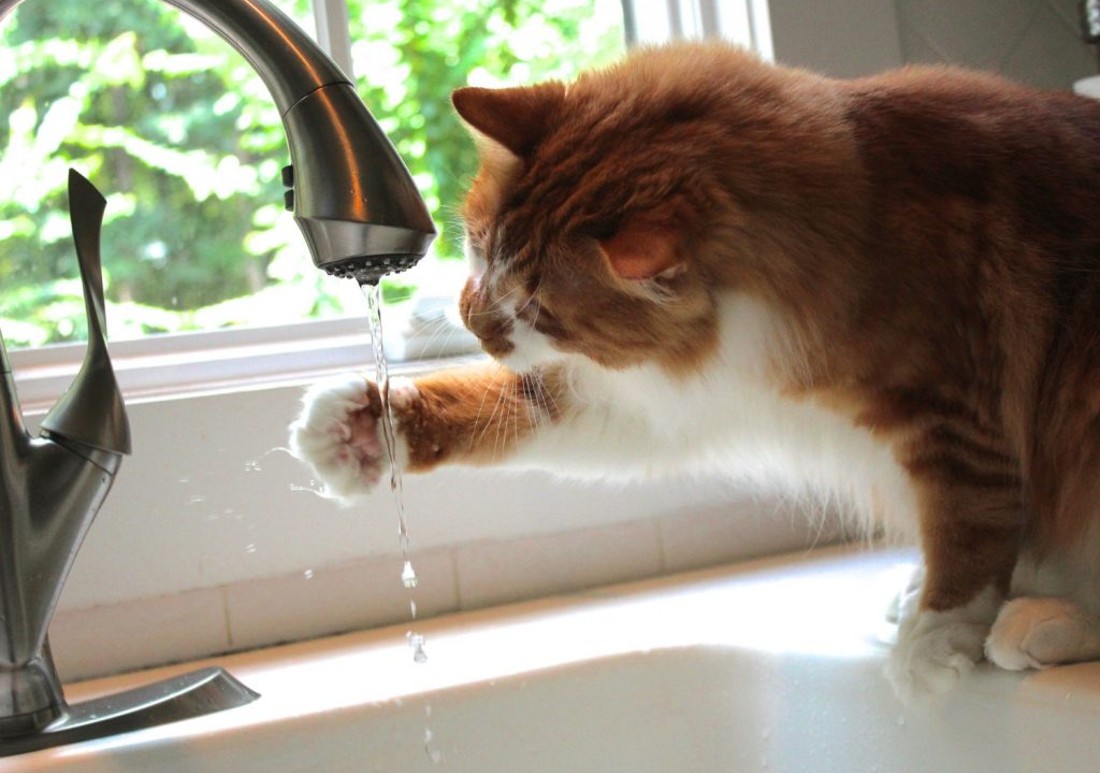5 Cat Dehydration Symptoms to Watch Out For

Cats are well known for their independence and self-sufficiency, but when it comes to their health, they rely on their human companions to ensure they receive proper care and attention.
One critical aspect of feline health is hydration. Dehydration in cats can lead to serious health issues, so it’s essential to be vigilant about recognizing the signs. In this blog post, we’ll explore five cat dehydration symptoms to be mindful of, why hydration is crucial for cats, and how to prevent it.
Why Hydration Matters for Cats
Water is essential for all living creatures, and cats are no exception. Proper hydration is crucial for maintaining their overall health and well-being. Water plays several vital roles in a cat’s body, such as:
- Temperature regulation: Cats need water to regulate their body temperature, especially in hot weather.
- Digestion: Adequate hydration aids in the digestion of food, preventing issues like constipation.
- Organ function: Water helps the kidneys and liver function properly, eliminating waste products from the body.
- Joint health: Hydration supports joint lubrication, which is essential for active cats.
- Preventing Urinary Tract Issues: Sufficient water intake reduces the risk of urinary tract problems and can help prevent conditions like feline lower urinary tract disease (FLUTD).
Now that we understand hydration’s importance let’s delve into the five dehydration symptoms to watch out for in your feline companion.
Symptoms of Cat Dehydration
1. Increased Thirst
While cats can have individual variations in their water consumption, any significant increase in thirst should raise a red flag. If you notice your cat drinking more water than usual, it may be an early sign of dehydration.
2. Dry or Sticky Gums
A simple way to check your cat’s hydration level is to lift their lip and observe their gums gently. Healthy, well-hydrated cats have moist, pink gums. If the gums appear dry, sticky, or pale, it could indicate dehydration.
3. Reduced Skin Elasticity
Skin elasticity is another indicator of hydration. Gently lift the skin on the back of your cat’s neck or between their shoulder blades and release it. The skin should quickly return to its normal position in a well-hydrated cat. If it takes longer to return or remains tented, it suggests dehydration.
4. Sunken Eyes
Dehydration can cause the eyes to appear sunken or hollow. A cat’s eyes should be bright and alert. It may be a sign of reduced hydration if they seem dull or sunken.
5. Lethargy and Weakness
Dehydrated cats often become lethargic and weak. They may lose interest in their usual activities, become less playful, or lie around more than usual. This behavior change can be an early indicator of dehydration.
Preventing Dehydration in Cats
Preventing dehydration in cats is essential for their health and well-being. Here are some steps you can take to ensure your feline friend stays properly hydrated:
- Fresh water: Ensure your cat always has access to clean water. Cats can be particular about their water source, so consider offering it in different types of bowls, such as ceramic or stainless steel, or a cat fountain, such as a Petlibro water fountain.
- Wet cat food: Consider incorporating wet cat food into your cat’s diet. Wet food has a higher moisture content than dry kibble, helping to increase their overall water intake.
- Regular checkups: Schedule regular veterinary checkups for your cat. A veterinarian can assess your cat’s overall health and recommend specific dietary adjustments or treatments if necessary.
- Hydration supplements: Sometimes, your veterinarian may recommend hydration supplements or special diets designed to promote water intake.
- Behavior monitoring: Pay attention to changes in your cat’s behavior, such as increased thirst or reduced activity levels. Early detection can lead to prompt intervention and treatment.
- Multiple water sources: If you have multiple cats, ensure that each cat has access to their water source to reduce competition and stress.
When to Seek Veterinary Care
If you suspect that your cat is possibly dehydrated or notice any of the symptoms mentioned above, it’s crucial to seek veterinary care promptly. Dehydration can be a sign of an underlying medical condition that requires professional evaluation and treatment. Your veterinarian will assess your cat’s hydration level, perform diagnostic tests if necessary, and recommend appropriate interventions.
Conclusion
Keeping your cat properly hydrated is essential for their health and well-being. By being vigilant and recognizing the signs of dehydration, you can take proactive steps to ensure that your feline companion stays hydrated and healthy. Remember that prevention and early detection are key to effectively addressing dehydration and its underlying causes.
Your Pet’s Best Interest, Always
At Pet Institute, we take pet care seriously. We're dedicated to transparency, impartiality, and the well-being of your pets in every article, review, and recommendation we provide. Our unwavering commitment to these principles ensures that you, our valued reader, always receive reliable and unbiased information. Let us be your trusted guide in the world of pet care and companionship.